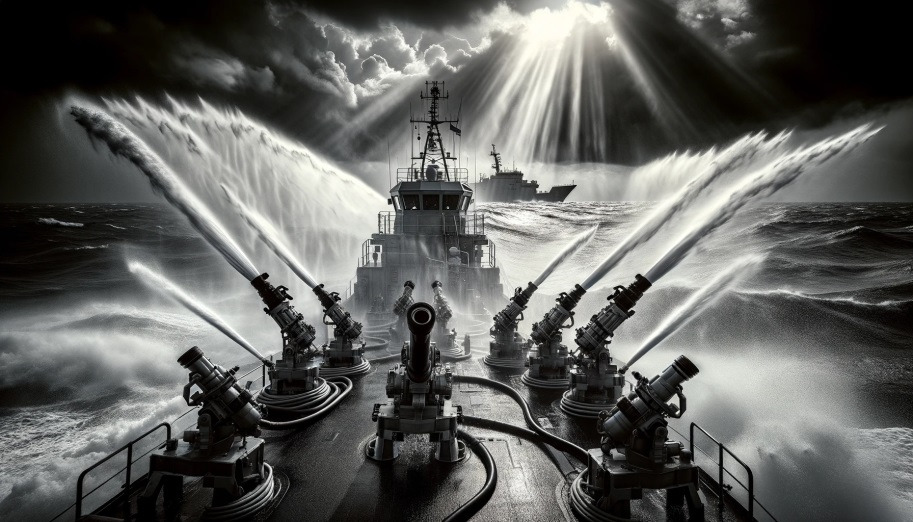Precision and Power: China’s Smart AI Water Cannons Raise the Bar in Non-Lethal Weaponry
In central China, scientists have developed the world’s first “smart” water cannon system controlled by artificial intelligence. This technological breakthrough could significantly impact the use of non-lethal weapons. Beijing considers such systems critically important for strengthening control over disputed maritime territories and reducing the risk of armed conflict.
The use of AI to control non-lethal weapons may open new possibilities for resolving territorial disputes, lowering the chances of escalation into more destructive forms of military confrontation.
According to research by Chinese border authorities, the use of water cannons in South China Sea disputes is expected to become more frequent and intense, potentially changing the rules of engagement in this sensitive region.
The water cannon, powered by a high-pressure pump, can strike targets over 100 meters away, generating pressure exceeding 1.2 megapascals. This force is comparable to the pressure exerted by the step of an African elephant.
In recent months, Philippine vessels have repeatedly faced water cannon attacks from Chinese coast guards. In one recent incident, a cabin’s front glass panel was shattered, injuring several crew members.
The new system, developed by the Wuhan Institute of Marine Electric Propulsion, enables the water cannon to automatically recognize targets and adjust the power and trajectory of the water jet based on feedback from a photoelectric camera. The weapon is also equipped with motion sensors that analyze ship movements to fine-tune ballistic parameters.
Achieving accuracy against targets at sea is complicated by unpredictable winds, complex hydrodynamics, and potential mechanical errors. However, by using reverse calculation methods and self-learning AI, Chinese researchers have made significant progress in improving water cannon accuracy.
During test firings, the smart water cannon demonstrated the ability to hit surface targets with a margin of error of just two meters, even in rough seas and high winds—making it 33-54% more accurate than traditional automatic water cannons.
China is actively advancing water cannon technology, focusing on automation and increased power, which significantly strengthens its position in deploying this type of weaponry.



